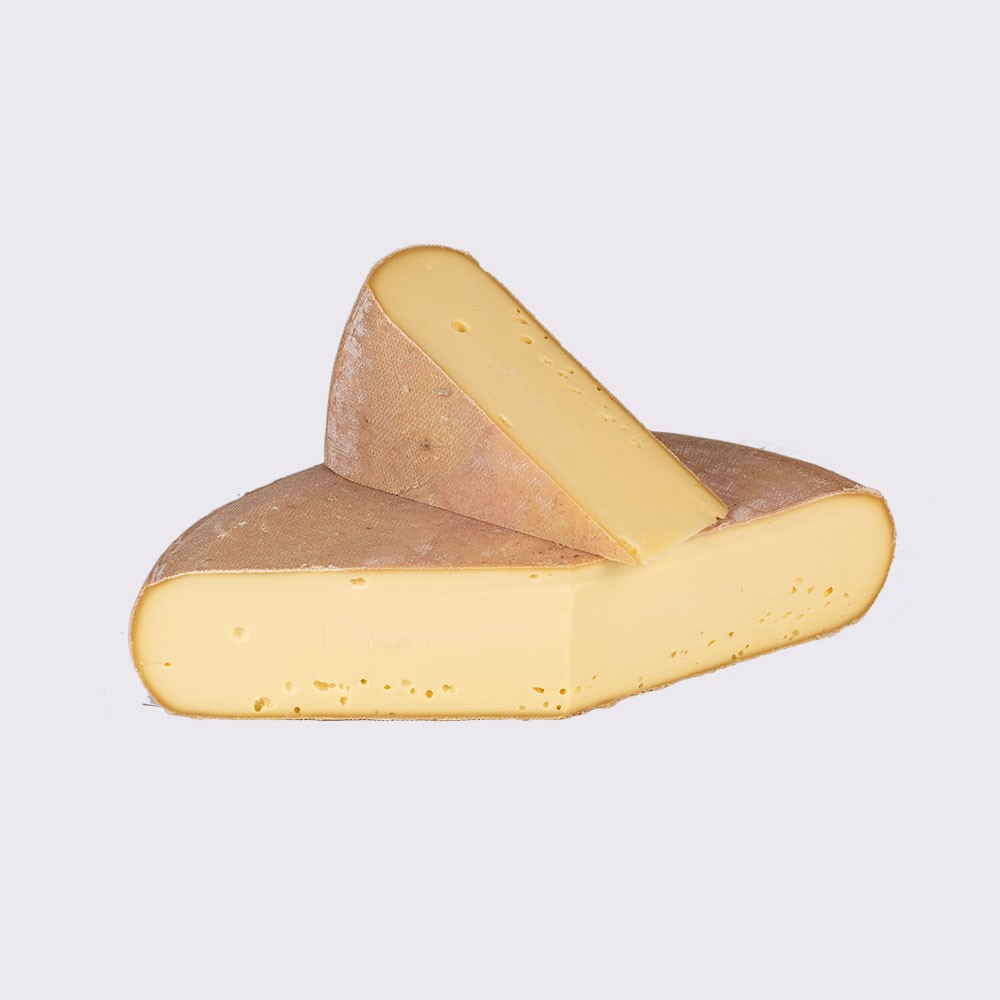
Raclette Fromagerie Napiot
2) Raclette is a type of meal: Raclette is also the name of an Alpine cheese dish traditionally made by melting raclette cheese and scraping the gooey, melty cheese goodness like a thick sauce over crusty bread, baguettes, cooked potatoes, and other accompaniments such as pickled onions, gherkins, veggies, or cold charcuterie meats.

Raclette Cheese French Moments
The Origins of Raclette: Raclette's journey through history can be traced back to the Alpine region of Switzerland. The name "raclette" itself is derived from the French word "racler," which means "to scrape." This term aptly describes the method of preparing this delectable dish.

How to Make Raclette Eat, Little Bird Raclette Dinner Party, Fondue
The History of the Raclette 'Raclette' is actually not the name of a cooking apparatus, but a semi-hard cow's milk cheese. Semi-soft and salted, Raclette was first made in the canton of Valais-home of the Matterhorn-in the southwestern area of Switzerland. The dish featuring Raclette cheese dates back more than 700 years, when it was..

SWISSMAR Cast Iron Raclette Raclette dinner party, Raclette, Raclette
The origins of Swiss Raclette can be traced back to the Alpine regions of Switzerland, where it was first mentioned in historical documents dating back to the 13th century. The cheese was traditionally made by shepherds who used open fires to melt the Raclette cheese and scrape it onto potatoes, pickles, and onions. Over the centuries, Raclette.

Raclette's So Much Cooler Than Fondue Raclette, Food, Yum
Raclette is a semi-hard cheese that originated from Switzerland. It's traditionally made from cow's milk and is most famous for its melting qualities, which make it a staple in Swiss cuisine. The name 'Raclette' comes from the French word 'racler', which means 'to scrape'.
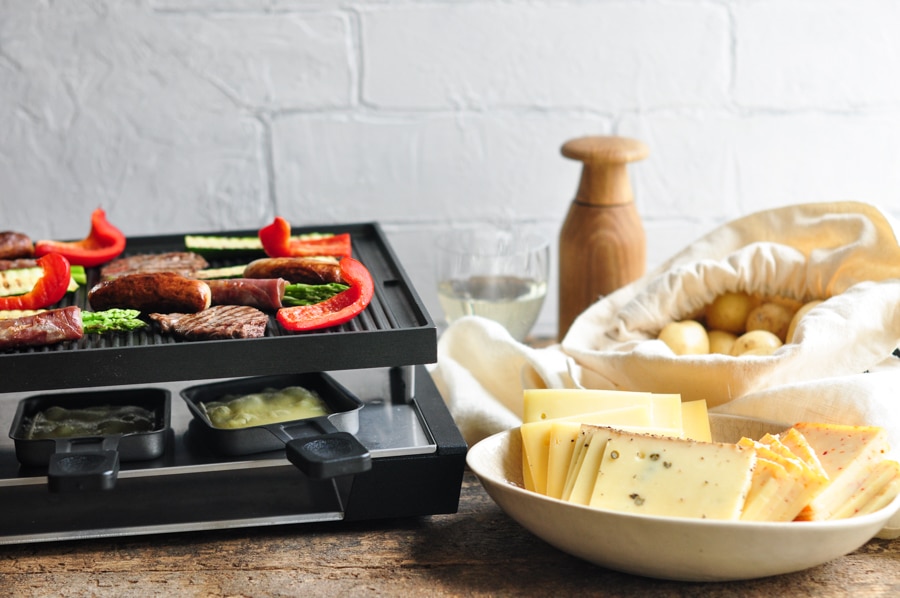
How to Make Raclette Tips for the Perfect Raclette Dinner Eat
For a long time the Swiss heated the cheese maker by the fireside, scraping it with a knife. The name only took hold at the end of the 19th century, when raclette became a national dish, before crossing borders when the raclette machine was invented in the 1970s.

Raclette Where to Find It & How to Make It Glutto Digest
The Origins of Raclette Cheese; Raclette cheese finds its roots in the Valais canton of Switzerland, with its name derived from the French word "racler," which means "to scrape." This term refers to the traditional method of melting the cheese near an open fire or heating element and then scraping it onto plates or over accompaniments like.
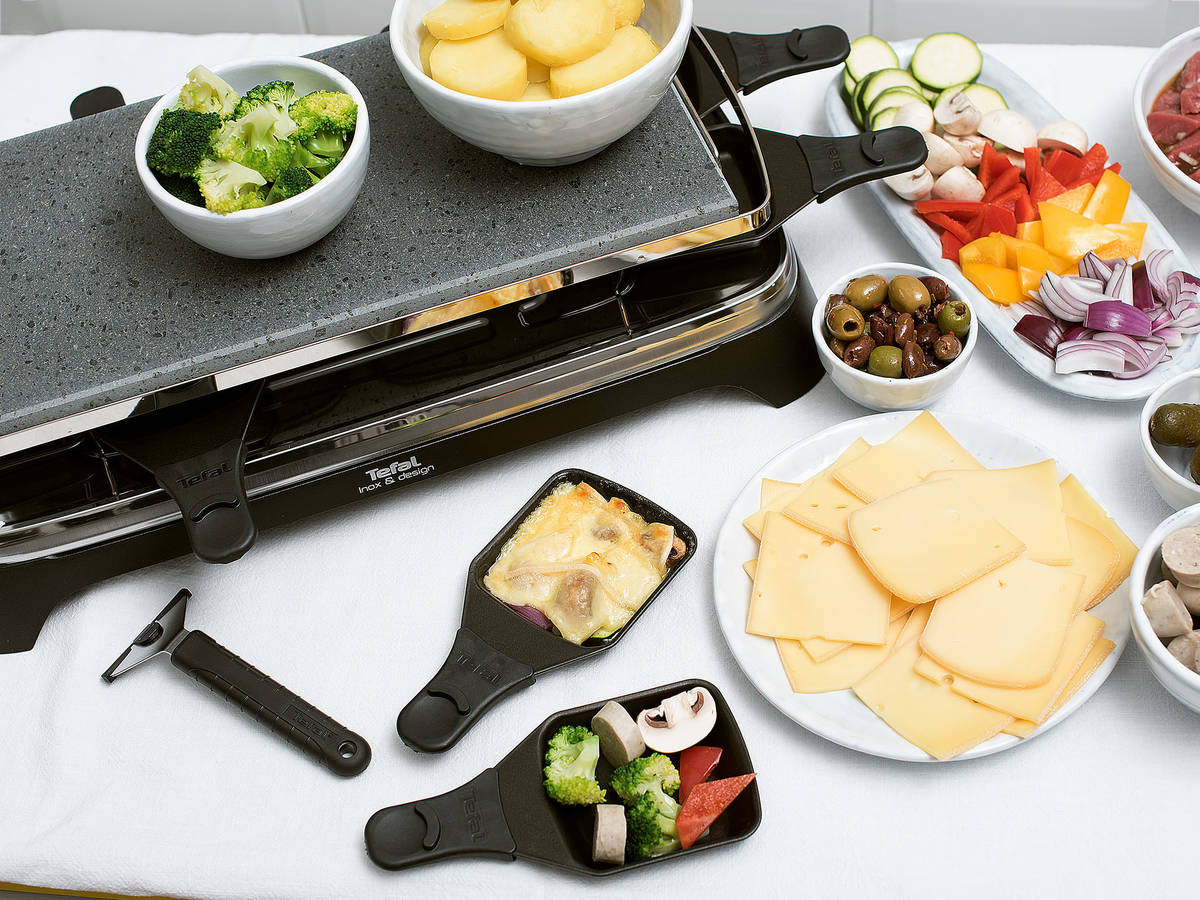
Hire Our Raclette Grill During Your Stay In Morzine Elevation Alps
Wheels of AOP raclette cheese have a stamp on their sides, which shows exactly where and when the cheese was made. 3. This delectable cheese will melt at 104°F (40°C). 4. The only ingredients found in authentic raclette are: milk, water, salt, rennet, starter cultures, and cheese smear (cheese culture).
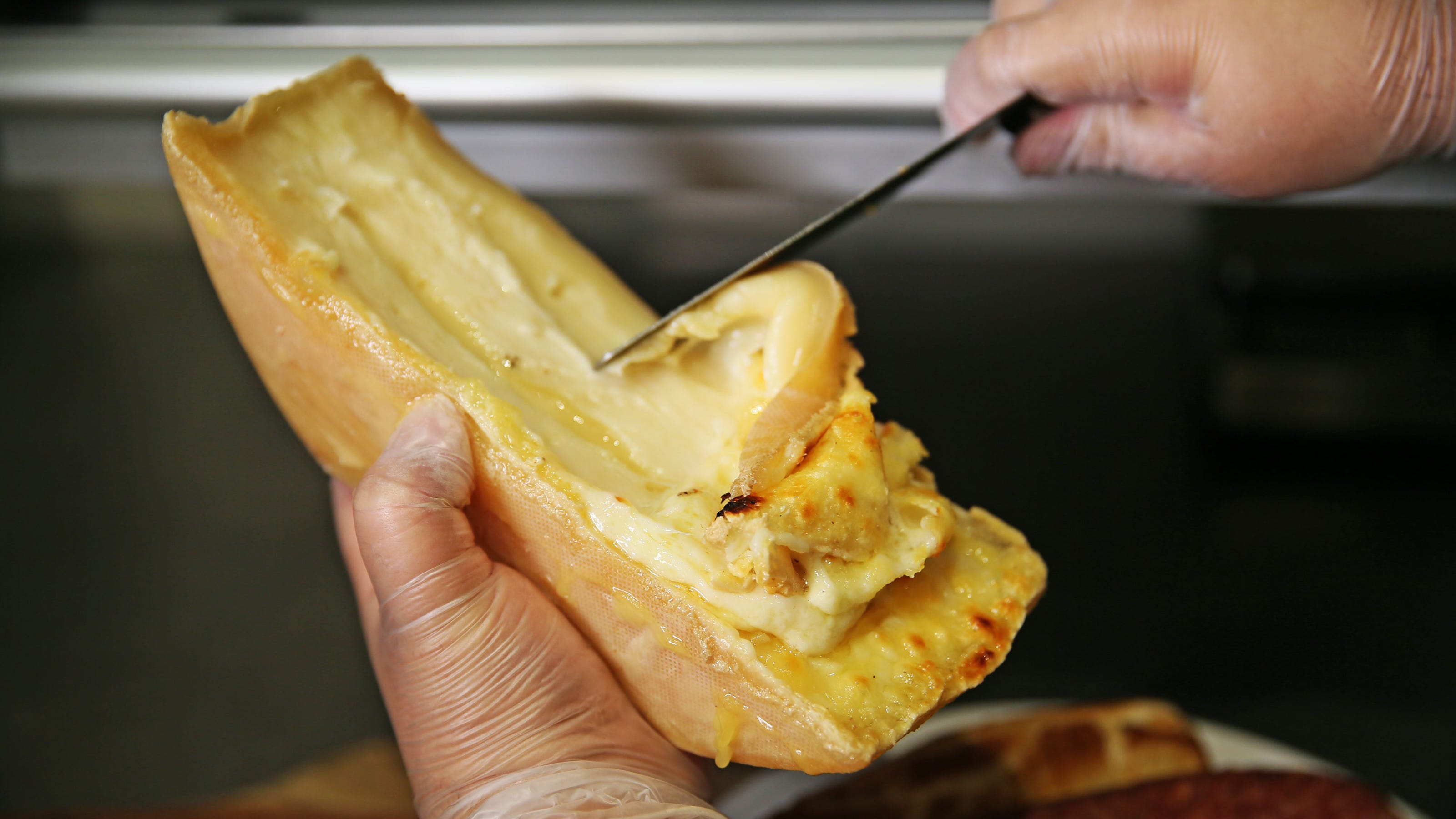
What to know about raclette, a French cheese drizzled over food
The Birth of Raclette Origins in the Valais Region. Raclette's origins can be traced back to the Valais region of Switzerland, where the dish first gained popularity. In this picturesque alpine region, where cheese production and shepherding were integral parts of the local economy, Raclette emerged as a way to utilize the plentiful supply of.
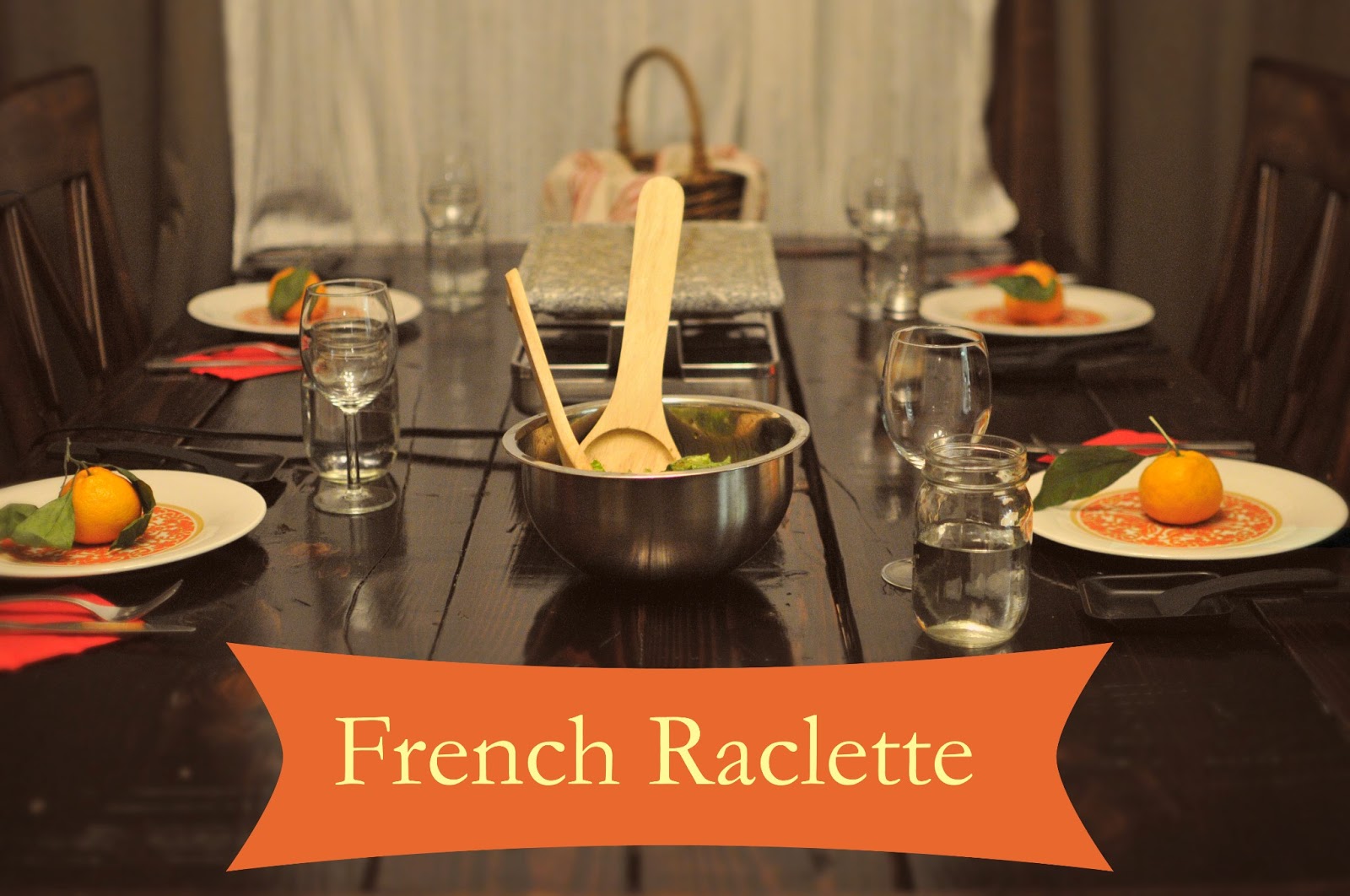
nashville narnian French Raclette
2 History. The dish featuring Raclette cheese dates back more than 700 years, when it was called Bratchäs, Swiss-German for "roasted cheese." Raclette was mentioned in writings as early as 1291. The semi-hard cheese was easy to transport, and it was eaten by shepherds and farmers, who would place a block of cheese by a hearth or a campfire.
/raclette-182677158-582dd5313df78c6f6adc2281.jpg)
Raclette The French and Swiss Cheese Dish Recipe
So they brought cheese and potatoes. While the potatoes roasted in the fire, a big piece of cheese was put close to the fire. Once it started melting the cheese was taken away and scraped of the cheese onto the baked potatoes. This was not only filling and nourishing but also delicious. In French 'to scrape' translates to 'racler' and.
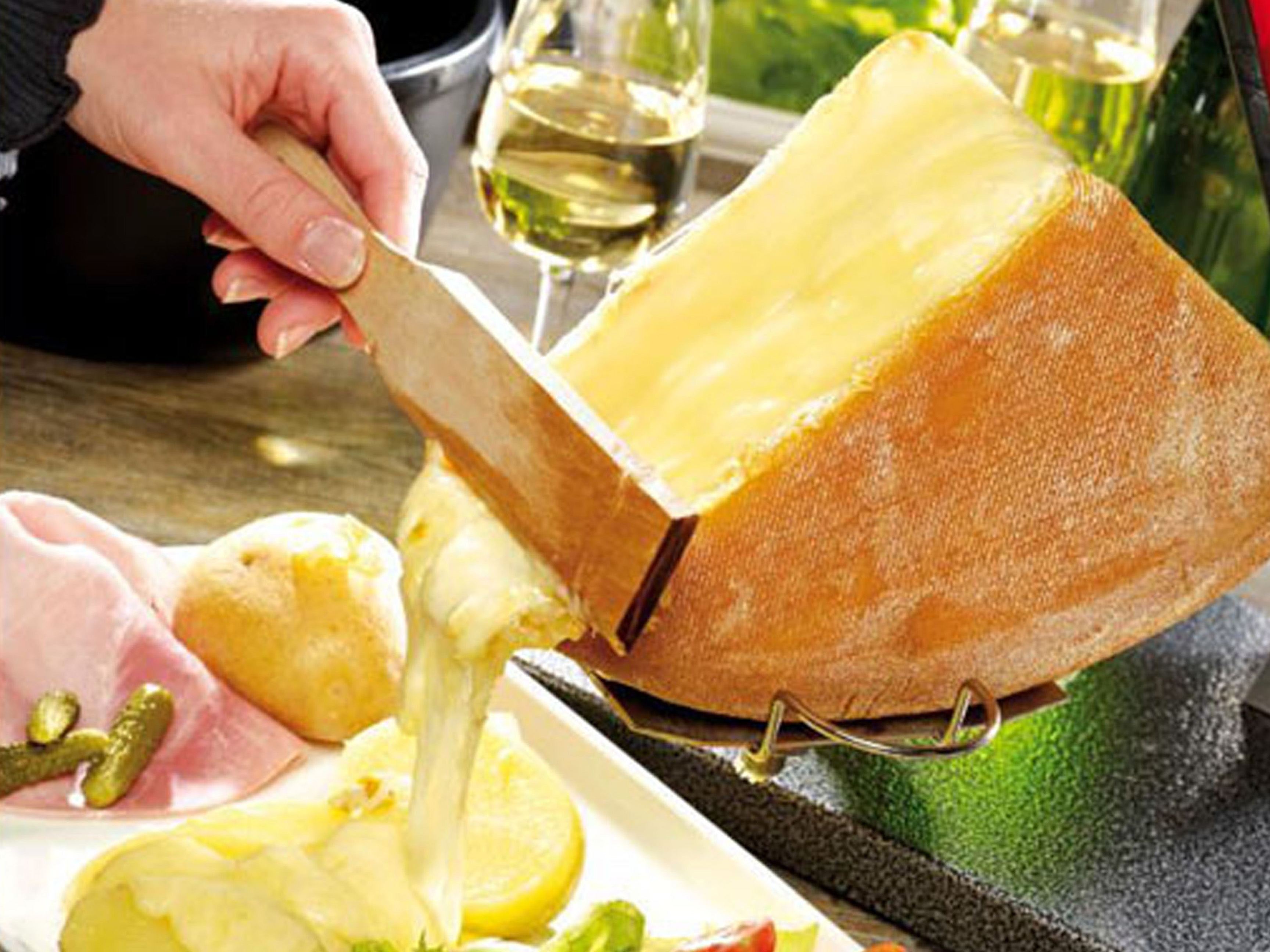
raclette Frenchly
How it all began. Raclette originates in Wallis, Switzerland, and is traditionally thought to be more than 400 years old. The first written records date back to the early 19th century. In 1812, in his description of the Simplon district Dr. H. Schiner mentions a tradition in the Val d'Anniviers, in which sumptuous feasts begin and close with.

French Raclette The Cheese dish at home (recipe) Snippets of Paris
Start by firing up your raclette grill. While you're waiting for it to heat up, cut up several slices of raclette. Don't be shy—you'll want thicker slices of cheese. Once the grill is hot, melt the cheese in the individual pans and cook the meats and veggies. Once everything is cooked to your liking, go ahead and plate your selections.

Kiss My Apron Raclette Four cheese sliders & more!
Raclette with boiled potatoes, pickles and onions. Raclette (/ r ə ˈ k l ɛ t /, French: ⓘ) is a dish of Swiss origin, also popular in the other Alpine countries (France, Germany, Austria), based on heating cheese and scraping off the melted part, then typically served with boiled potatoes.Raclette cheese is historically a dish originating from the canton of Valais in Switzerland.

Comment rendre sa raclette plus légère ? Top Santé
Raclette is having a moment in the spotlight. Usually hiding in the shadow of the famous Swiss cheese dish fondue, more people are discovering the melty, hearty dish that has been enjoyed in Europe's alpine regions for centuries.. History of Raclette. In the southern Swiss canton of Valais, recipes calling for melted cheese date back to.

Raclette Your Way to a Happy New Year Portland Monthly
Raclette has a much earlier origin. First mentions date back more than 400 years. The origins of raclette also score points when it comes to alpine romance. It convinces with far more tender melting than the state-imposed fondue campaign. Shepherds, it is said, placed a quarter-sized wheel of cheese on the embers of their campfire.